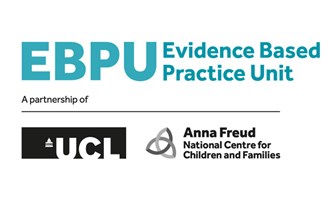This post gives you 10 practical ways as a parent to support your child’s mental health and wellbeing.
It’s Children’s Mental Health Week this week and there are loads of great resources for schools from Place2Be and the Anna Freud Centre for Children and Families (and from us from the last 2 years here!).
However, families and parents are vitally important in helping children to develop and maintain good mental health and wellbeing. It can be tricky to know where to start, though, so these 10 tips should help.
Although they are ‘easy’, we recognise that being a parent is rarely easy, however hopefully there is at least one tip that you can try with your child to get started.
Good luck!
10 ‘easy’ ways to support your child’s mental health
1. Show them you love them – hug them (if they will let you!). If they don’t like hugs, how about a high five or a special handshake for just the two of you?
2. Try to create a home environment where they know they are safe to be themselves – whoever they are. Accept them as they are and don’t try to force them to be something they are not.
3. Take a genuine interest in the activities and things they love (not what you would like them to love). If they love american football, learn about it so you can chat to them about their interest – get them to teach you!
4. Tell them that you recognise their strengths and show them you notice when they do the right thing (e.g. ‘I saw you helping David with the baby. Thank you, that was such a kind way to behave and so helpful’).
5. Make time and space for your child and give them your full attention. A little bit of undivided attention and active listening every day is great. Turn off your phone and really listen to them. A car journey or walk where you are side-by-side can be more fruitful than a face-to-face interrogation! Our family conversation cards can help get you chatting.
6. Show them that everyone is human and makes mistakes. By doing so you can model effective ways to deal with difficult situations (e.g. calming down, saying you are sorry, explaining that you recognise you made a mistake and what you’ll do to make sure it doesn’t happen again). They will learn from you that it’s okay to make mistakes and healthy ways to deal with it.
7. Make sure your child knows the family boundaries and what the consequences are if they cross the line. It’s not the severity of the consequences that is necessarily important, but the fact they know there are clear boundaries and you will follow through. This helps them to feel safe and secure.
8. Encourage talking about emotions and mental health. This need not be scary or ‘touchy feely’ if that makes you uncomfortable. Simply sharing your day and how things made you feel is a great start. E.g. ‘I felt really angry earlier today because I got a parking ticket and I mistakenly thought I was parked legally.’ is a good start!
9. Help your children to set and achieve goals. Perhaps they’d like to run (or walk) a mile. You can help them to do it and show them how to break their goal down into manageable sections. This is a really helpful life skill and very good for wellbeing.
10. Show children it’s important to take care of your physical and mental health. Model good habits to them (e.g. “I can feel myself getting a bit wound up about that parking ticket again, so I’m going to have a walk / bath (or both!) to calm myself down!”).
Good luck!
Do contact us at support@mindmoose.co.uk if you’d like to try Mind Moose to build a positive relationship with your child and support their mental health (or if you’re lucky, your school has already signed up, so speak to them about how you can get involved too!).
PS. You can download a printable PDF of this guide by clicking the box below if you are a parent, or a school that would like to share it with parents.






